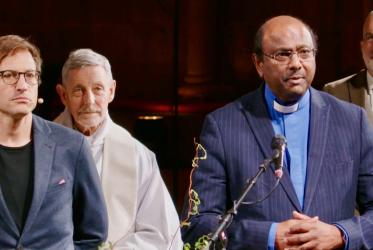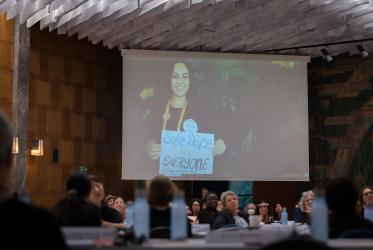While it was German chancellor Angela Merkel who boldly affirmed the willingness of Germany to receive hundreds of thousands of immigrants, it has fallen to the interior ministry, under the leadership of her longtime ally Dr Thomas de Maizière, that must realize that dream – and keep it from becoming a nightmare – through concrete arrangements for reception and integration of migrants into German society and its economy.
A member of the German parliament who has served as interior minister in Merkel’s third cabinet, de Maizière comes from a publicly engaged family. His Huegenot ancestors fled France to seek asylum in Prussia. His father, Ulrich, was a professional soldier, rising to become the Inspector General, or the highest ranking officer in the armed forces in postwar West Germany, This meant several moves while Thomas was growing up. During his law and history studies Thomas joined the Association of Christian Democratic Students and later worked in the office of Berlin’s mayor Richard von Weizsäcker. His family was split between East and West Germany, and he was in touch with the growing opposition movement in the East.
After the Berlin Wall fell in November 1989, de Maizière’s cousin Lothar de Maizière became the first and only freely elected prime minister of the German Democratic Republic in April 1990. Thomas commuted between East and West Berlin to support him in establishing the Office of the Prime Minister.
In what he describes as the most intense period of his professional life, Thomas also worked with his cousin’s team to negotiate the Unification Treaty, by which the GDR was reunited with the West into a single Federal Republic of Germany.
Since 2005 de Maizière has worked closely with Chancellor Merkel, first as the chief of staff of the Federal Chancellery, then, since 2009, to serve as a member of the parliament and minister of the interior (and also for a time as defense minister), with responsibility for the nation’s public security, migration and integration, public service, volunteer work, administration, sports, churches and civil protection.
In his 18 January presentation to a conference organized by the World Council of Churches in partnership with UNICEF and other agencies of the United Nations on the refugee crisis in Europe, de Maizière urged stronger solidarity among European nations on refugee work, a rethinking of Europe’s whole asylum system, greater emphasis on improving lives in the countries of origin or those nearby, and – most controversially – a limit on the number of refugees allowed into Europe.
Citing limited resources in Europe, de Maizière said, “Even though we as Christians would like to help every person in need, we know that we cannot offer unlimited charity – at least in the form of taking in everyone seeking protection here – without sacrificing ourselves and our society.
“We are faced with difficult equations between competing values, interests and duties…. We must live with this dilemma and try to make ethical, balanced decisions which are fair both to our citizens and to those in need.”
Since 2003, de Maizière has been a member of the presidium of the German Protestant "Kirchentag" (church congress) responsible for organizing the country's biggest Protestant event, which gathers tens of thousands of people every two years.
Describing himself as “a German politician in Europe, as a European, but also as a Protestant Christian,” de Maizière has strong convictions about the churches’ potential in this situation, both in its service and its political advocacy:
“What role can the churches play in all these issues?
“Above all an active role. In the past, the churches have always been active in major policy developments….
“And yet even more is needed. The overlap between church and government is greater than ever these days …. Christian churches cannot afford not to take a political stance. Church is more than religious communication to give life meaning.
“The pastor of the Protestant St Nicholas Church in Leipzig, Christian Führer, was known for his support of the Monday demonstrations that helped end the East German regime. As he rightly said, 'Not getting involved is also a highly political act.'”
Read also: German interior minister underlines churches' role in refugee response (WCC press release of 18 January 2016)
More information on WCC work on migration (including conference documentation)
Video recordings of the keynote by the German interior minister and other sessions are available on the WCC YouTube channel.





